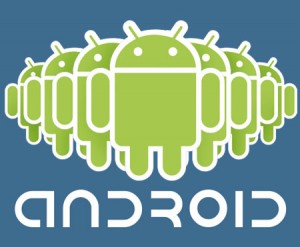 In an interview (probably $) with the Wall Street Journal, Eric Schmidt, the chairman (and ex-CEO) of Google, said:“The adult way to run a business is to run it more like a country. They have disputes, yet they’ve actually been able to have huge trade with each other. They’re not sending bombs at each other. … It’s extremely curious that Apple has chosen to sue Google’s partners and not Google itself.”
In an interview (probably $) with the Wall Street Journal, Eric Schmidt, the chairman (and ex-CEO) of Google, said:“The adult way to run a business is to run it more like a country. They have disputes, yet they’ve actually been able to have huge trade with each other. They’re not sending bombs at each other. … It’s extremely curious that Apple has chosen to sue Google’s partners and not Google itself.”
This is actually quite a naive view both from an intellectual property (patent) point of view and also from a business point of view.
Many years ago I had to learn quite a lot about patents in mobile since the GSM standard ended up containing a lot of patented technology as part of the standard. Indeed, there was the concept of “essential” and “non-essential” patents. An essential patent is one that you could not avoid infringing if you were compliant with the GSM standard. For example, Philips had a patent on the specific parameter values used in the vocoder so it wasn’t possible to use those values, specified in the standard, without infringing Philips’s patent.
I was working for VLSI Technology and nobody came after us for patent infringement. There are two reasons for this, which Eric Schmidt doesn’t seem to understand. The first is that we built chips. Since patents typically were about a mobile phone with certain capabilities, we didn’t infringe the patent directly since we didn’t make mobile phones. Potentially we infringed all sorts of semiconductor manufacturing patents, but that was a different issue. In the same way, although a mobile phone containing the Android operating system may infringe some Apple patent, almost certainly the operating system itself does not since it is not a device.
The second reason nobody would come after VLSI Technology then or Google now is that you always want to go after the furthest downstream product you can. A royalty of 2% is worth more on a more expensive product, and even if the royalty is fixed (for instance, Philips wanted $1 from every mobile phone for the vocoder license and other patents) it is easier to get a $1 from a $100 product than from a $10 product. Since Google gives away Android it is not clear (perhaps even to Google) how much money they generate on which to base any royalty anyway.
Interestingly, one of the Android licensees is Samsung. Apple is suing Samsung. But it is also Samsung’s biggest semiconductor customer. They would seem to completely embody Eric Schmidt’s statement that “they have disputes, yet they’ve actually been able to have huge trade with each other.”
Share this post via:







Advancing Automotive Memory: Development of an 8nm 128Mb Embedded STT-MRAM with Sub-ppm Reliability